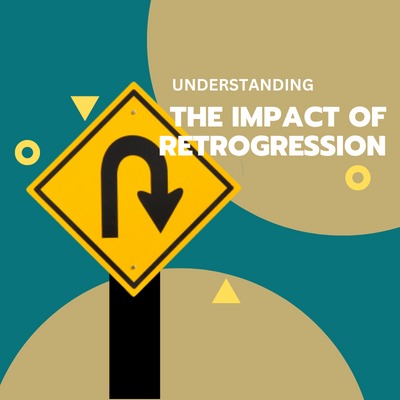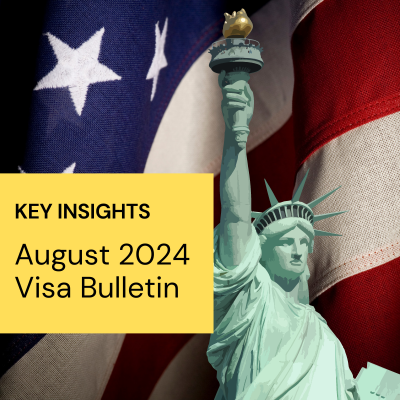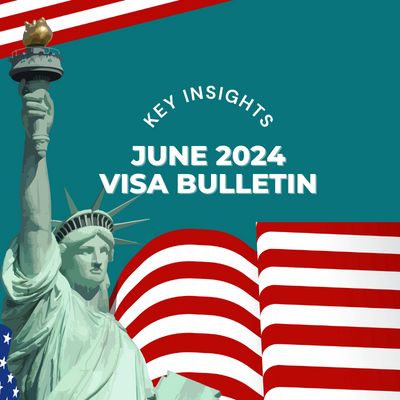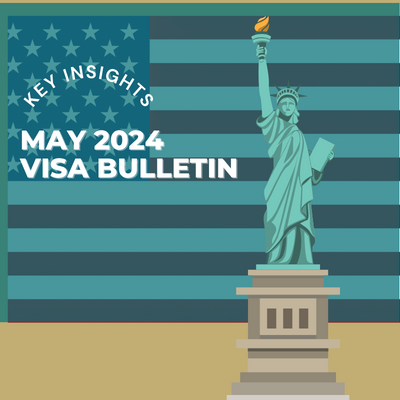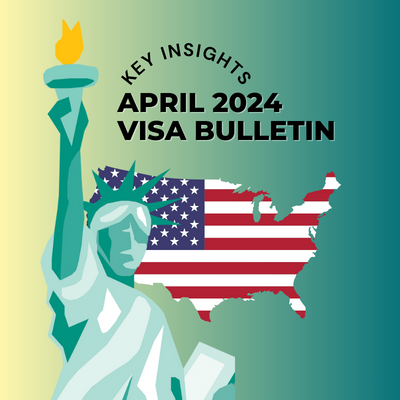We have all seen the keyword” Retrogression” becoming a Google trend post the release of the last visa bulletin of fiscal 2022. We noticed the same phenomenon after USCIS released its Dec 2022 bulletin. In the current bulletin, this is again happening with the Indian Green card seekers under the EB-2 category.
What is retrogression?
We want to understand the phenomenon in layperson’s terms. In that case, retrogression occurs when the cutoff dates that determine Green card availability move backward instead of forward.
What is the impact of retrogression?
If one needs to understand the impact, it is better to get answers to questions that describe it.
Q1. What is the effect on the “dependent” child’s age if the date retrogresses?
A1:If a dependent child’s I-485 application is filed based on the cutoff date in the final action chart (i.e., Chart A) being current, the child’s age is considered unchangeable as per law. The rule is valid, even if the priority date later retrogresses.
The application of this age protection is not applicable if the I-485 is filed based on the need date being current in the dates for the filing chart (i.e., Chart B). However, if the I-485 is filed based on Chart B, the principal parent’s need date later becomes current. On Chart A, the child is protected before the child ages out, even if the dates subsequently retrogress.
Q2:What happens to the availability of AC21 Portability and Interfiling benefits in case of retrogression?
A2:Under the American Competitiveness in the 21st Century Act (AC21), a foreign national might move to another job with the same or similar occupational classification outlined in the underlying PERM labor certificate or the I-140 petition (where no PERM is required). If the I-485 is pending for less than 180 days, “retrogression” does not affect the eligibility to port jobs under AC21. Conversely, interfiling is not permitted unless the person’s priority date is current. On the Chart A of the visa bulletin at the time the interfiling request is made.
Q3: Is my EAD or AP affected by retrogression?
A3:If a foreign national appropriately files an I-485 application, the individual is generally eligible to apply for an employment authorization document (EAD)/ advance parole (AP), or both.
Similarly, while the I-485 remains pending, it is ordinarily possible to reestablish one’s EAD and AP. Retrogression doesn’t affect the validity of a current EAD or AP, nor does it keep an individual from applying for extensions.
Q4: Does retrogression affect my priority date or place in line for an immigrant visa?
A4: If a noncitizen is seeking a visa in a preference category that requires a labor certification from the Department of Labor (DOL), their priority date generally is the date DOL accepts the labor certification application for processing. For all other employment-based preference categories, the priority date is when USCIS agrees with the underlying petition for processing.
Retrogression does not affect your priority date or your place in line for an immigrant visa, and you may still receive a green card when one becomes available to you based on that priority date.
Q5: If my adjustment of status application was approved, but then the Final Action Date for my category and country of chargeability later retrogresses, does that affect my status as a lawful permanent resident?
A5: Retrogression does not affect lawful permanent residents. (Added 10/26/2022)
Q6: Does retrogression affect consular processing?
A6: Yes. DOS and USCIS are only authorized to issue Green card numbers (for consular processing or adjustment of status).
An applicant in under family-sponsored or employment-based preference category has a “priority date” that is earlier than the date shown in the “Final Action Dates chart” on the Visa Bulletin for their “chargeability country” and Green Card category on the Visa Bulletin shows “current”, the green card numbers are authorized for issuance to all qualified applicants). (Added 10/26/2022)
Q7: How does retrogression of the Final Action Dates affect eligibility for exemption from the 6-year limit on H-1B status?
A7:Under INA 214(g)(4), the period of “authorized admission” as an H-1B nonimmigrant “may not exceed six years.” However, there are certain exemptions to this limitation, including the exemption established by Congress in section 104(c) of the American Competitiveness in the Twenty-First Century Act (PDF) and codified in regulation in 8 CFR 214.2(h)(13)(iii)(E). Under this exemption, USCIS may grant an additional period in H-1B status in increments of up to 3 years for a “Noncitizen” who currently maintains or previously held H-1B status. The person is also the beneficiary of an approved EB-1, EB-2, or EB-3 immigrant visa petition and is eligible for LPR status in one of those green card categories as per country limit.
In case one is an “adjustment of status” applicant and is otherwise eligible for the exemption and does not have an immigrant visa available to them in EB-1, EB-2, or EB-3 due to the application of the per-country limitations of INA 202(a)(2), USCIS may grant additional periods in H-1B status in increments of up to 3 years. (Added 10/26/2022)
Q9. Does retrogression affect issuing a “Request for Evidence,” or “Notice of Intent to Deny,” or scheduling an interview reset the 180-day portability clock?
- No. For more information about portability, please see Volume 7, Part E, Chapter 5 of the USCIS Policy Manual. (Added 10/26/2022)
- Do biometrics “expire” due to retrogression?
- No, the biometrics collected by USCIS in connection with a pending adjustment of status application never “expire.” While biometrics-based background checks are valid for 15 months, USCIS refreshes the background check associated with the pending “adjustment of status” application by resubmitting the previously provided biometrics; and no new biometric appointment is necessary (Added 10/26/2022)

